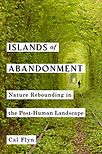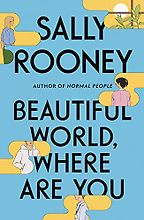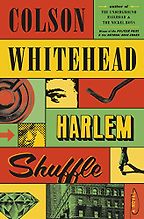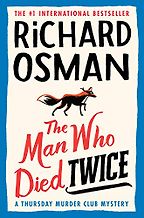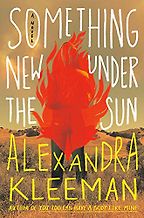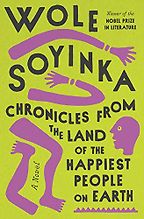What are the most hotly anticipated novels of fall 2021?
Whatever you call it—autumn or fall—this season will inevitably be dominated by the release of Sally Rooney’s third novel, Beautiful World, Where Are You. It follows two erudite young Dubliners navigating their late twenties, one a fabulously successful novelist and the other an editorial assistant at a literary magazine. Rooney, whose writing is characterised by intellectual sparring, dry humour and emotionally fraught sex, has previously enjoyed a rapturous critical and popular response both, and Beautiful World, Where Are You seems likely to attain those same heady heights.
Saying that, after the massive international success of Normal People and the phenomenon that was the subsequent television adaptation starring Paul Mescal and Daisy Edgar-Jones, one senses something of a backlash building against the Irish writer. The Atlantic offered a helpful roundup: critics have pointed to her books’ political posturing—one writer dubbing it “sanctimony literature”—and argued that her characters are too thin, too beautiful and too ironic for their own good, and not quite bisexual enough.
Personally, I feel these criticisms to be slightly unfair, given that Rooney has never positioned herself as a ‘voice of a generation’ (and indeed, often insists on her own dullness and insignificance when interviewed—albeit not wholly believably). And I find it a little sad that Rooney’s books are more often discussed as an ultimate expression of millennial culture, than the smart, entertaining, thought-provoking, tear-jerking novels that they are. Needless to say, I pre-ordered my own copy months ago. Out Sept 7.
It’s on the list. What other dates should I have in my diary?
Other big hitters bringing out new books in fall 2021 include fellow Irish novelist Colm Tóibín, whose The Magician is a vivid fictional biography of Thomas Mann, the Nobel laureate and author of The Magic Mountain and Death in Venice (23 Sept); Lauren Groff, who found huge success in 2015 with her two-headed story of a marriage Fates and Furies, and now returns with Matrix, about a nun exiled from the court of Eleanor of Aquitaine (Sept 7); and Karl Ove Knausgård, who steps away from autofiction with The Morning Star, a traditional novel about strange celestial happenings, which has received critical acclaim in his native Norway (Sept 28 in the US; Sept 30 in the UK).
Colson Whitehead, twice-winner of the Pulitzer Prize (for The Underground Railroad and The Nickel Boys), is to publish Harlem Shuffle, a 1960s-set heist billed as “a family saga masquerading as a crime novel” (Sept 14). Whitehead’s high concept novels have often leaned on the conventions of genre fiction—and subverted them to glorious effect. For Harlem Shuffle, Whitehead turned for inspiration to caper films, crafting his comedic, intricately complex plot in their image. “I love the meticulous planning;” he has said, “the way the heisters try to outwit destiny and fate by exercising their own will.” The “complicated jigsaw” cover by Oliver Munday is, he says, a good clue as to what readers can expect inside.
I should also note that Elizabeth Strout is due to publish Oh William!, in which the title character of My Name is Lucy Barton reconnects with her ex-husband. It’s garnered advance praise from such luminaries as Hilary Mantel, Anne Patchett, Zadie Smith and Maggie O’Farrell. And Gary Shteyngart (author of the oft-recommended Super Sad True Love Story) will release Our Country Friends, in which eight friends shelter together in the Hudson Valley during the first months of the Covid-19 lockdown (Nov 2).
You mentioned genre fiction—are there any notable sci fi, fantasy, romance or crime novels to look out for in fall 2021?
Paula Hawkins, author of The Girl on the Train—which sold 20m copies and was made into a Hollywood movie starring Emily Blunt—is shortly to publish a new thriller. A Slow Fire Burning offers a twisting, turning, cerebral mystery featuring—unusually—a male victim and several women suspects (Aug 31). There’s a large cast of complicated characters, a book within a book, and a murder on a houseboat. The Guardian has declared it “a return to form” after Hawkin’s slightly underwhelming last novel, Into the Water.
Richard Osman is about to release a follow-up to his likeable and funny first book The Thursday Murder Club, which has been a fixture on bestseller lists since its 2020 release. This new murder mystery returns to the sleepy retirement village of Coopers Chase, where our septuagenarian sleuths have returned to the jigsaw room—only to find their peace shattered again when a ghost from the past sends one of their number a letter, many years after his supposed violent end. The Man Who Died Twice looks set to charm all those who loved Osman’s earlier book; I’m told the second outing of the Thursday Murder Club is even more fun than the first (Sept 28/Sept 16).
(Pssst. Looking for more books like The Thursday Murder Club? Our editor Sophie Roell has some suggestions!)
The new Stephen King novel, Billy Summers, is just out and has been receiving rave reviews; The Guardian called the assassination thriller “his best book in years”. And Graeme Macrae Burnet (author of the very excellent, Booker-shortlisted His Bloody Project) will release Case Study, a legal thriller of exceptional intelligence and literary merit, on 7 October. Alas, it’s only available in the UK for now—although I hope the North American rights are snapped up soon.
In romance, I’ve seen a lot of chatter about A Lot Like Adiós by Alexis Daria—a friends-to-lovers story released on 14 September—and Portrait of a Scotsman by Evie Dunmore, billed as a feminist Regency romance that sits “sits squarely at the unique intersection of history, romance, and women’s rights”, according to Jodi Picoult (Sept 7). Science fiction fans should look out for Adrian Tchaikovsky’s Elder Race (Nov 16) and Nnedi Okorafor’s Noor (Nov 9).
Any personal highlights this season?
I was a big fan of Alexandra Kleeman’s 2016 debut You Too Can Have a Body Like Mine, which was a numbly dystopic story of obsessive friendship and consumerism. Kleeman’s new book Something New Under the Sun, freshly out, is an equally unsettling story of Hollywood development hell in a future California so racked by climate change as to resemble Hell itself. Part cli fi, part social satire, this is literary fiction with a bite, for fans of Ottessa Moshfegh and Emma Cline.
I’m also excited about Ruth Ozeki’s brilliantly inventive new novel The Book of Form and Emptiness (Sept 21); Dave Eggers’ tech industry satire The Every, which is his follow-up to The Circle (Oct 21); and past Five Books interviewee Elizabeth Day‘s latest novel Magpie(Sept 2). Plus don’t miss the new novel from Kia Corthron, the acclaimed playwright and author of award-winning doorstopper The Castle Cross the Magnet Carter; this latest work, The Moon and the Stars, is a coming-of-age tale see through the eyes of a biracial girl in New York in the years leading up to the American Civil War.
Any other fall 2021 novels I should know about?
Oh, heaps. But I’ll be quick. There’s a new novel from Pulitzer Prize-winner Anthony Doerr (All the Light We Cannot See)—another sweeping literary epic that shifts from the past (1453 Constantinople) to the present (contemporary Idaho) to the future (an interstellar voyage). Cloud Cuckoo Land is a ambitious and moving book; a “magical literary puzzle”, according to Kirkus, which would make an excellent book club choice. I’ll also be looking out for The Love Songs of W.E.B. Du Bois, the first novel by the poet Honorée Fanonne Jeffers, the new Jonathan Franzen, Crossroads, and We Are Not Like Them, by Christine Pride and Jo Piazza, which focuses on the aftermath of the shooting of a Black teenager in Philadelphia.
Another notable new novel of fall 2021 is Wole Soyinka’s Chronicles from the Land of the Happiest People on Earth, due to be published in the US and UK on 28 September, which is the Nobel laureate’s first novel in almost fifty years. It’s billed by the publisher as “at once a literary hoot, a crafty whodunit, and a scathing indictment of Nigeria’s political elite”, which features stolen body parts, Yoruba royalty and a murdered engineer. It’s dense and complex, but with a sense of humour.
I should also note the imminent arrival in North America of several British novels of note: Lean Fall Stand by Jon McGregor, the story of an Antarctic accident and its aftermath which I recommended a few months ago; also Small Pleasures by Clare Chambers, an uplifting tale of an apparent virgin birth in 1950s England that’s been a word of mouth hit; plus Dolly Alderton’s very popular dating disaster novel Ghosts, which will appeal to anyone who enjoyed her bestselling memoir of single life, Everything I Know About Love.
And don’t forget When We Cease to Understand the World, the mind-expanding novel of scientific and mathematical discovery, translated by Adrian Nathan West and shortlisted for the 2021 International Booker Prize. First published in the original Spanish back in 2017, and available in the UK since 2020, it’s finally made its way stateside. The Booker judges called it “dazzlingly clever” and I can only concur—it’s quite astonishing. It’s published by New York Review Books on Sept 28: don’t miss it.
Part of our best books of 2021 series.
August 26, 2021. Updated: August 29, 2025
Five Books aims to keep its book recommendations and interviews up to date. If you are the interviewee and would like to update your choice of books (or even just what you say about them) please email us at [email protected]
Five Books interviews are expensive to produce. If you've enjoyed this interview, please support us by donating a small amount.

